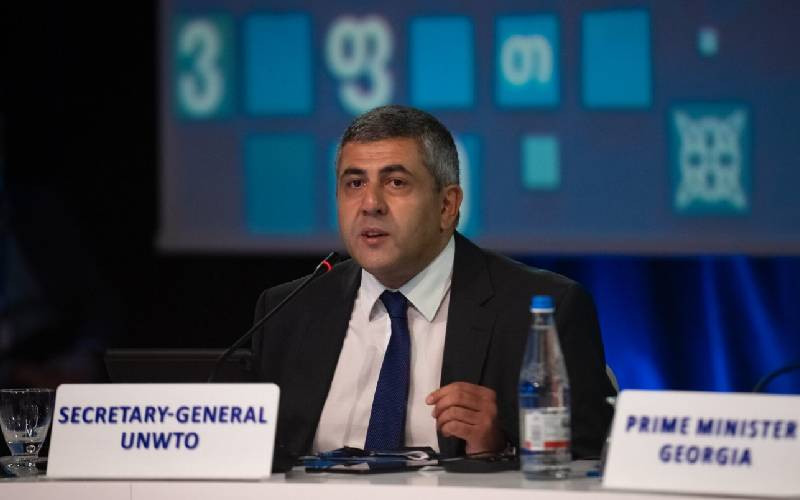In a rather interesting case, High Court Judge Mumbi Ngugi recently dismissed a case in which a six-year-old boy sued Rusinga School for ordering him to shave off his dreadlocks.
The boy’s mother had gone to court protesting that the school’s directive was illegal as it discriminated against him on gender, religious, and cultural grounds. She argued that the boy’s father is Jamaican and dreadlocks are part of his culture.
However, according to the Judge, the boy had failed to convince the court that his culture and religious rights had been violated. In fact, it was Justice Ngugi’s finding that the boy’s mother wanted him to keep dreadlocks more for fashion than on religious grounds as she had alleged.
Accordingly, the ruling left the mother and boy with the hopefully not so difficult decision to either cut off his hair and resume school, or look for another school that has no dread for dreadlocks.
Over in Isiolo County, Muslim parents and leaders were recently breathing fire over the decision by the High Court in Meru to bar Muslim girls from wearing the hijab (Islamic head gear) and long trousers.
The Court temporarily barred the students of St Paul Secondary School from wearing the hijab until a case brought by the Methodist Church of Kenya, which claims to be the school’s sponsor, is heard and determined. The case is not dissimilar to one brought against Kenya High School some time back.
Thousands of miles away, the US Supreme Court has agreed to hear a similar case brought against the American clothing retailer Abercrombie & Fitch for refusing to hire a Muslim woman who wore the hijab to an interview.
The suit alleges that Samantha Elauf was not hired because she wore the black headscarf that would have required the company to grant her a religious exemption from its dressing policy. Whereas a federal judge had earlier ruled against the company, the 10th US circuit court of appeal reversed that decision, thus prompting Samantha to move to the Supreme Court. It is said that the case hinges on whether employees must explicitly request religious exemption from potential employers’ company policies.
What this brings to the fore is that the world is in the dawn of unfettered freedoms. Even Kenyans are waking up to the extensive liberties the new constitutional regime has ushered into our social landscape. We are beginning to see a rather heavy traffic towards the courts with litigations over all manner of issues touching on individual and collective rights.
While pundits have lauded this as progressive and a sign of social maturity, others are concerned that the trend could easily undermine the peaceful co-existence among diverse members of society that has characterised Kenya’s social psyche. The new move could easily cage us into legally enforced relationships rather than the natural loving human bonds that many of us have been familiar with.
One wonders, for example, the future of the Rusinga boy’s relationships with school communities wherever he may find himself. Even if the mother chooses to eat humble pie, cut his hair, and take him back to Rusinga, there is a social stigma that has already been imposed upon him by the actions of his mother. Should he be taken to another school, the new administration may view him as a potential violator of school rules and hence a possible liability to the peace and harmony of their institution.
One therefore wonders why the mother, having known all along that dreadlocks are not permitted, and having signed the school’s code of conduct agreeing to observe rules and regulations, went ahead to drag the innocent boy through a tedious litigation process instead of seeking an amicable solution.
Her litigious spirit may have just succeeded in inducting the young boy into the unfortunate culture of impunity in which rules and laws are observed only as long as they are in consonance with personal preferences.
That is why it is instructive that in her ruling, Justice Ngugi said courts have no desire to interfere with the running of institutions, but must instead allow schools to govern their pupils.
Stay informed. Subscribe to our newsletter
But it is apparent that there are people who are seeking to push rights beyond what may be right. This is truly ludicrous because, when it comes to social intercourse, human relationships can never be enforced by brute force or legal fiat.
Worse still, it is insincere for individuals or groups to willingly enter into social contracts with other individuals or institutions, fully cognizant of the obligations accruing from such commitments, and then turn around with frivolous demands for rights they had readily surrendered. You cannot knowingly and willingly enter a Chinese restaurant and yet stir up a ruckus demanding to be served ugali na nyama choma or else you sue the restaurant for culinary discrimination against your palate. No, please!
 The Standard Group Plc is a
multi-media organization with investments in media platforms spanning newspaper
print operations, television, radio broadcasting, digital and online services. The
Standard Group is recognized as a leading multi-media house in Kenya with a key
influence in matters of national and international interest.
The Standard Group Plc is a
multi-media organization with investments in media platforms spanning newspaper
print operations, television, radio broadcasting, digital and online services. The
Standard Group is recognized as a leading multi-media house in Kenya with a key
influence in matters of national and international interest.
 The Standard Group Plc is a
multi-media organization with investments in media platforms spanning newspaper
print operations, television, radio broadcasting, digital and online services. The
Standard Group is recognized as a leading multi-media house in Kenya with a key
influence in matters of national and international interest.
The Standard Group Plc is a
multi-media organization with investments in media platforms spanning newspaper
print operations, television, radio broadcasting, digital and online services. The
Standard Group is recognized as a leading multi-media house in Kenya with a key
influence in matters of national and international interest.








